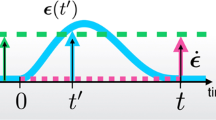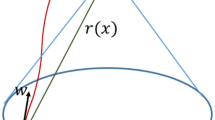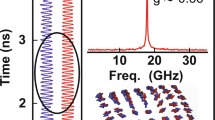Abstract
THE new wave mechanics admits the existence in physical phenomena of a variable quantity that satisfies a special differential equation. According to Schrödinger, this function is such that the product , where is the conjugate complex quantity, is the electrical density. On the contrary Bateman (NATURE, 118, 839) has recently shown that, by considering two functions, each of which satisfies the wave equation, it is possible to determine the potentials a and of the electromagnetic field. Starting from Bateman's considerations, de Broglie (C.R. 184, 81) has shown that the values calculated with this theory coincide with those of Maxwell's theory if one admits that the frequency of the fundamental functions be very high and that the considered phenomenon be nearly stationary in relation to this frequency. De Broglie, however, has shown that, given the waveequation putting in the place of the function the two 1 = A÷r cos 20t, 2= Bsin 20t, and introducing the potentials the results verify Lorentz's equation We thus obtain for the fields E and H the expressions that is, the characteristic values of a pole of charge k.
This is a preview of subscription content, access via your institution
Access options
Subscribe to this journal
Receive 51 print issues and online access
$199.00 per year
only $3.90 per issue
Buy this article
- Purchase on Springer Link
- Instant access to full article PDF
Prices may be subject to local taxes which are calculated during checkout
Similar content being viewed by others
Author information
Authors and Affiliations
Rights and permissions
About this article
Cite this article
CARRELLI, A. The Spinning Electron in Wave Mechanics. Nature 119, 492–493 (1927). https://doi.org/10.1038/119492b0
Issue Date:
DOI: https://doi.org/10.1038/119492b0
Comments
By submitting a comment you agree to abide by our Terms and Community Guidelines. If you find something abusive or that does not comply with our terms or guidelines please flag it as inappropriate.



